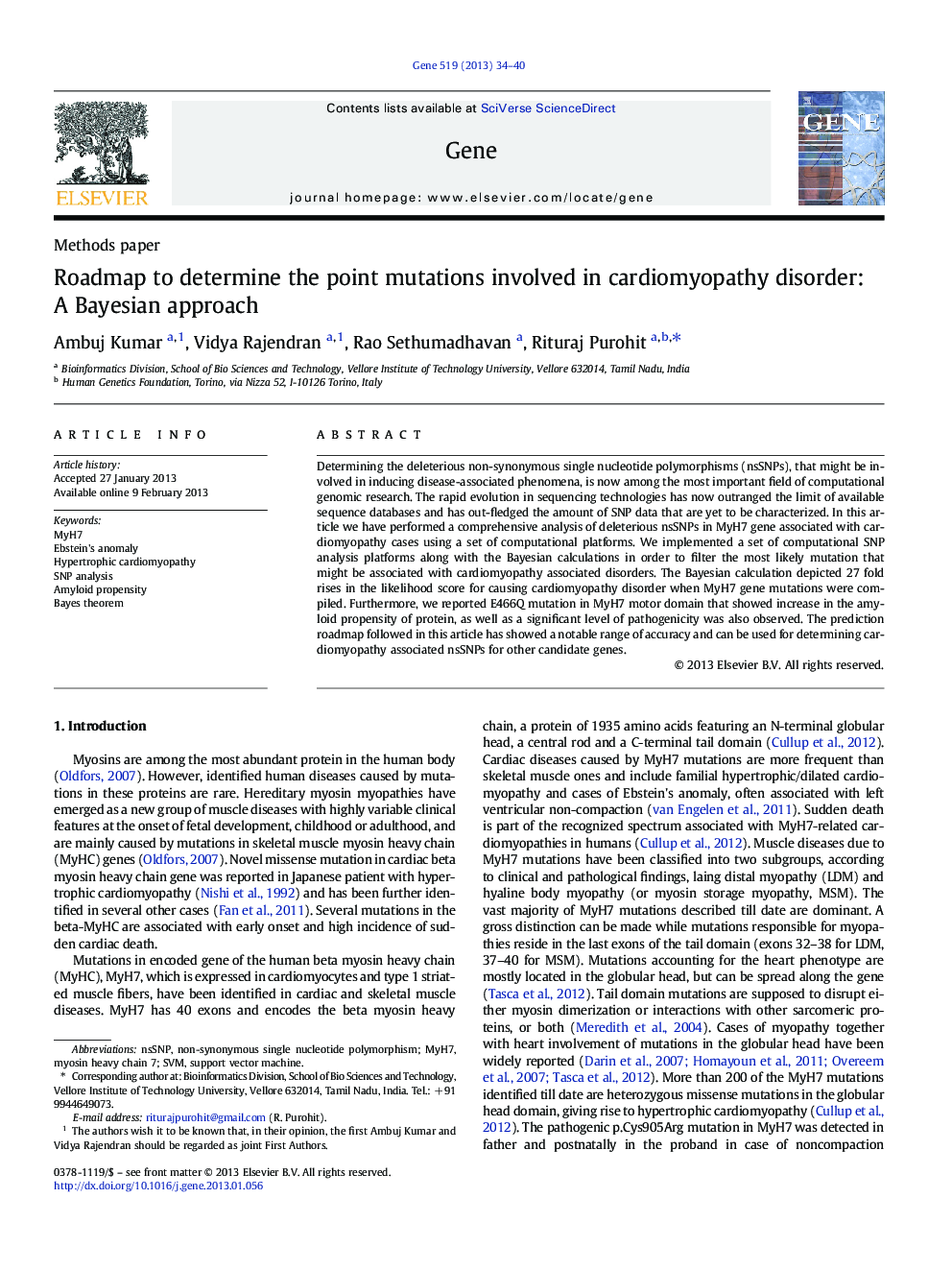| Article ID | Journal | Published Year | Pages | File Type |
|---|---|---|---|---|
| 5906571 | Gene | 2013 | 7 Pages |
Determining the deleterious non-synonymous single nucleotide polymorphisms (nsSNPs), that might be involved in inducing disease-associated phenomena, is now among the most important field of computational genomic research. The rapid evolution in sequencing technologies has now outranged the limit of available sequence databases and has out-fledged the amount of SNP data that are yet to be characterized. In this article we have performed a comprehensive analysis of deleterious nsSNPs in MyH7 gene associated with cardiomyopathy cases using a set of computational platforms. We implemented a set of computational SNP analysis platforms along with the Bayesian calculations in order to filter the most likely mutation that might be associated with cardiomyopathy associated disorders. The Bayesian calculation depicted 27 fold rises in the likelihood score for causing cardiomyopathy disorder when MyH7 gene mutations were compiled. Furthermore, we reported E466Q mutation in MyH7 motor domain that showed increase in the amyloid propensity of protein, as well as a significant level of pathogenicity was also observed. The prediction roadmap followed in this article has showed a notable range of accuracy and can be used for determining cardiomyopathy associated nsSNPs for other candidate genes.
Graphical abstractDownload high-res image (55KB)Download full-size imageHighlights⺠Effectiveness of computational platform in pathogenic allele prediction ⺠Bayesian approach was used in order to filter the most likely mutation. ⺠Amyloid propensity and pathogenicity of mutation in MyH7 protein were observed.
